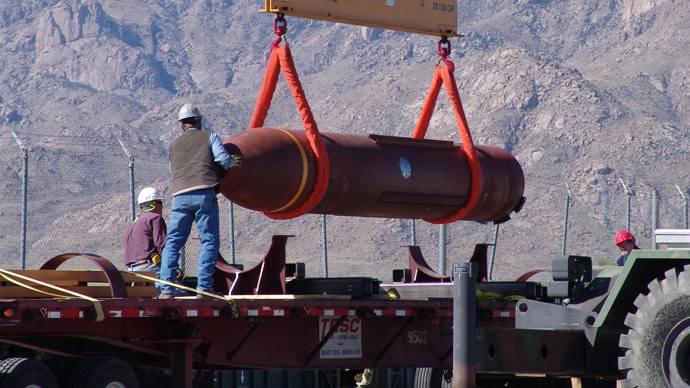Cold War Temperature Rising
"Unprofessional air intercepts have the potential to cause harm to all aircrews involved. More importantly, the careless actions of a single pilot have the potential to escalate tensions between countries."
Pentagon statement
 |
U.S. spyplane aggressively intercepted by Russian Su-27 over the Baltic Sea |
Russian President Vladimir Putin deplores the instigation of unrest by NATO forces in eastern Europe. That NATO has encouraged Ukraine to be unreasonable about the presence of ethnic Russian Ukrainians insisting on moving some of Ukraine's geography and authority from Kyiv to Moscow is also intolerable. Moscow is definitely not on the warmongering path, but Kyiv most certainly is, and as for NATO; their unspeakable interference in the Russian orbit is unforgivable.
The sanctions under which Russia has been labouring are more than unjust; they are unreasonably absurd; no reason whatever for that kind of nonsense. So it's up to Moscow to find other means of enriching itself so it can continue to carry on with its boosting of the Russian military with all the latest technically advanced war machines. The completion of the $800-million sale of air defence missiles to Iran as good a start as any.
 |
The sale "was done in the spirit of goodwill in order to encourage progress in the [nuclear] talks", stated Russian Foreign Minister Sergey Lavrov, in a bit of ironically black humour. So much for goodwill; anyone could see it was there, in the negotiating process because both sides, the world powers and the Islamic Republic of Iran were always smiling at one another. Iran excels at those smiles; perhaps on the part of the EU it was more of a grimace of tedium and surrender.
The S-300 surface-to-air system comes with the credentials of huge success. Any aircraft other than stealth (like the American Air Force's B-2 or F-22 aircraft) is pretty well guaranteed inoperability in airspace defended by them. The current Israeli Air Force aircraft, as example, will be mighty vulnerable; all the more so since Moscow is considering the sale of even more effective missile systems to their Iranian allies.
In a surprise counter-move the United States has given warning to Iran that the potential of an attack on its nuclear development facilities are off the table on a temporary basis: "We have the capability to shut down, set back and destroy the Iranian nuclear program and I believe the Iranians know that and understand that", said Defence Secretary Ashton Carter, in reference to the USAF's ground-penetrating bomb, the massive ordnance penetrator.

A Russian Air Force interceptor, an SU-27 buzzed an USAF RC-135U aircraft collecting technical intelligence on Russian radar emitter systems flying out of Moscow's Kaliningrad military base in international waters north of Poland. A week earlier a 120-vehicle convoy with 1,400 U.S. troops from the 2nd Cavalry Regiment returned to base in Germany on completion of an 12,800-km trek through Poland, Lithuania, Estonia, Latvia and the Czech Republic in a demonstration of Washington's support to eastern Europe NATO allies.
Moscow responded to that by mockery propaganda: "Tanks? No Thanks!", labelling it "an unnecessary and dangerously provocative military manoeuvre which (may) only increase international tension." True, all too true. Wouldn't it make eminently good sense for all sides to amp down the provocations? Trouble is, each is responding to the provocations of the other. And therein lies the danger, of a spark setting off a conflagration.
East Europe has seen that Russia is pressing against their borders with their support of the insurgents on the Donbas region of Ukraine; as good a symbol as any of just how vulnerable they themselves are to similar treatment. Vladimir Putin's recent announcement that he has no intention whatever of challenging any of Russia's former satellites for enhanced territory for the Russian Federation doesn't appear to have convinced those former satellites.
The Baltic republics in particular feel under pressure even as they are witness to Moscow busying itself rebuilding their military capacities, placing their new assets on display, and offering to sell advanced weaponry anywhere that is willing to pay hard cash.
Labels: East Europe, Iran, NATO, P5+1, Russia, United States

<< Home